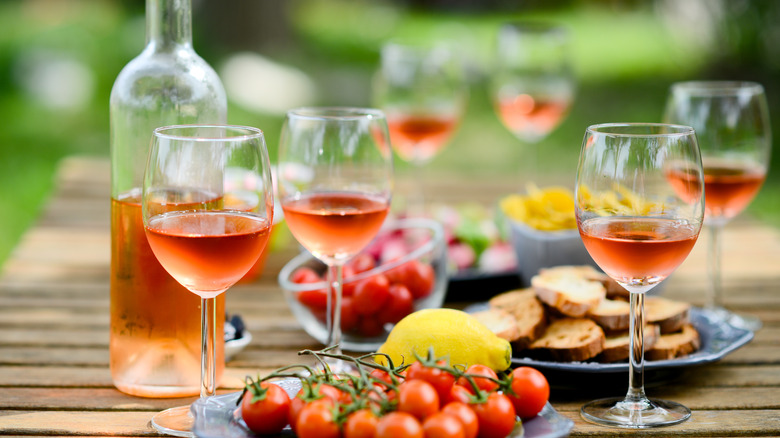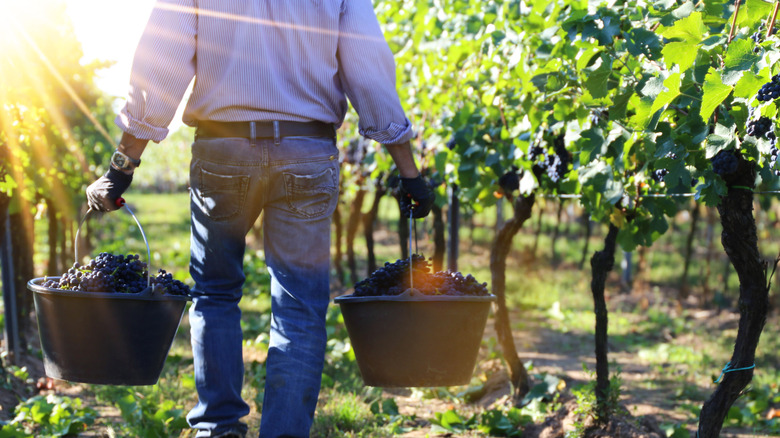Why You Should Try Rosé Made Entirely From Pinot Noir Grapes
The sun is shining, and the weather is heating up as the spring and summer months arrive. Per Wine Folly, this means it's officially time to pack up the picnic essentials and sip on some chilled rosé. When deciding which wine bottle to pull off the shelf (especially when it comes to rosé), it's essential to analyze the label. While packaging can play a role in drawing in your eye; there are two crucial elements to note when selecting your next bottle of rosé. First is the grape or grape blend (as many rosés can be a collection of grapes). Next, is the vineyard or region where the grapes were grown.
When it comes to selecting a rosé, according to MasterClass, a traditional rosé is made from a blend of red grapes like syrah, cinsault, mourvèdre, tibouren, carignan, or cabernet sauvignon — commonly grown in Provence, France. However, when picking up your next bottle, you may want to consider a new style of rosé: a 100% pinot noir.
What makes a 100% pinot noir rosé special?
It's no surprise most restaurant and wine bar menus will offer an assortment of pinot noir red wine. While knowingly challenging to grow, per Wine Enthusiast, this cool-climate grape has a typically juicy taste with notes of red fruit due to its high acidity levels.
Similarly to the complete characteristics of a traditional pinot noir red wine, the grape's usage in a rosé proves just as flavorful and popular. "When you make a rosé from 100% pinot noir, it creates a wine with floral notes, light color, and great natural acidity," explains vintner Chantal Forthun of Flowers Vineyards & Winery in Sonoma County, California.
According to Ben Lloyd, owner of Providence Wine Bar, "Pinot noir can run the full range of experiences on the nose and palate when done in a rosé style. The classic cherry profile of a red pinot noir often gives way to strawberry, rhubarb, and light just-picked cherry when it's a rosé." With regards to the mouthfeel of a 100% pinot noir rosé, Lloyd says, "There is always great acidity, but the mouthfeel can be lush and big (like Juve & Camps 100% Pinot Noir Cava) or light, restrained, and a touch creamy (like Patton Valley's 2020 100% Pinot Noir Rosé Pét-Nat)."
Are you ready for rosé to be your go-to beverage of the spring and summer? If so, experiment with 100% pinot noir grapes and taste the difference with a full-acidic, bright, and fruity wine.

